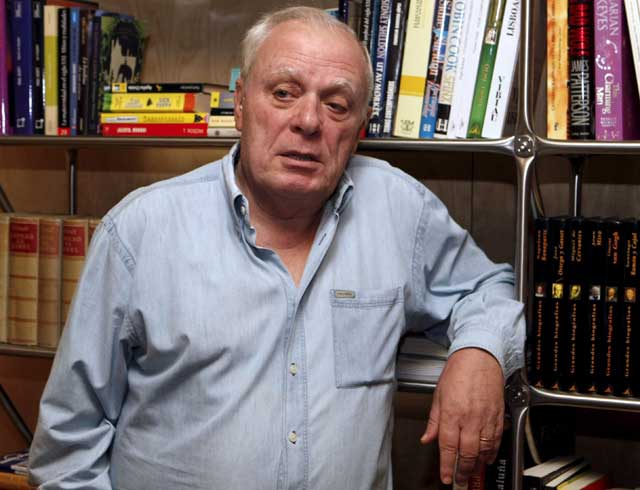The Land at the End of the World, By António Lobo Antunes, trans. Margaret Jull Costa

Your support helps us to tell the story
From reproductive rights to climate change to Big Tech, The Independent is on the ground when the story is developing. Whether it's investigating the financials of Elon Musk's pro-Trump PAC or producing our latest documentary, 'The A Word', which shines a light on the American women fighting for reproductive rights, we know how important it is to parse out the facts from the messaging.
At such a critical moment in US history, we need reporters on the ground. Your donation allows us to keep sending journalists to speak to both sides of the story.
The Independent is trusted by Americans across the entire political spectrum. And unlike many other quality news outlets, we choose not to lock Americans out of our reporting and analysis with paywalls. We believe quality journalism should be available to everyone, paid for by those who can afford it.
Your support makes all the difference.Before reading António Lobo Antunes's stunning novel about Portugal's colonial war in Angola (newly translated by Margaret Jull Costa), I knew little about the African country's history, its Portuguese colonisers, and its bitter fight for independence. The two years Lobo Antunes spent in Angola, serving as a medic, affected him profoundly and was a major theme of his earlier novels. His second, The Land at the End of the World (first published in 1979), suggests the author had a psychological compulsion to write about his experiences.
His narrator is a traumatised Portuguese medic who, six years after the end of the conflict, his marriage over and numbed by alcohol, recounts his 27 months of hell to an unnamed lover. He describes himself as "a cynical, prematurely old creature laughing at himself and at others with the bitter, cruel, envious laughter of the dead".
The medic painstakingly illuminates the dehumanising effects of watching his fellow men dying in agony, the constant hunger, and the lack of even the simplest of pleasures – human touch. He reveals his revulsion at the atrocities committed on both sides, but also his shame for not denouncing them. The soldiers' pervasive fear of death is summed up perfectly in the following passage: "Twelve hundred miles from Luanda, it was late January, it was raining, and we were going to die, we were going to die and it was raining, raining. Sitting in the cabin of a truck beside the driver, cap pulled low over my eyes, an endless cigarette vibrating in my hand, I began my painful apprenticeship in dying."
Blending politics into fiction, Lobo Antunes is unremitting in his anger at those waging war from the safety of their offices and the ruthlessness of the widely feared PIDE agents (International and State Defense Police), there to protect "the wealth of the three or four families who shore up the regime". His narrator describes how the soldiers are instructed to test out the sand ahead of the trucks for mines because "a truck was more important and more expensive than a man".
Although the chapters are orderly, following the letters of the alphabet, the horrors of war are rendered in unruly, often wildly beautiful prose. Lobo Antunes has been hailed as Portugal's greatest living writer and, judging by this brilliant portrait of mental trauma, I would be inclined to agree. He conveys, like little else I've read, how the emotional scars of combat never fully disappear.
Join our commenting forum
Join thought-provoking conversations, follow other Independent readers and see their replies
0Comments